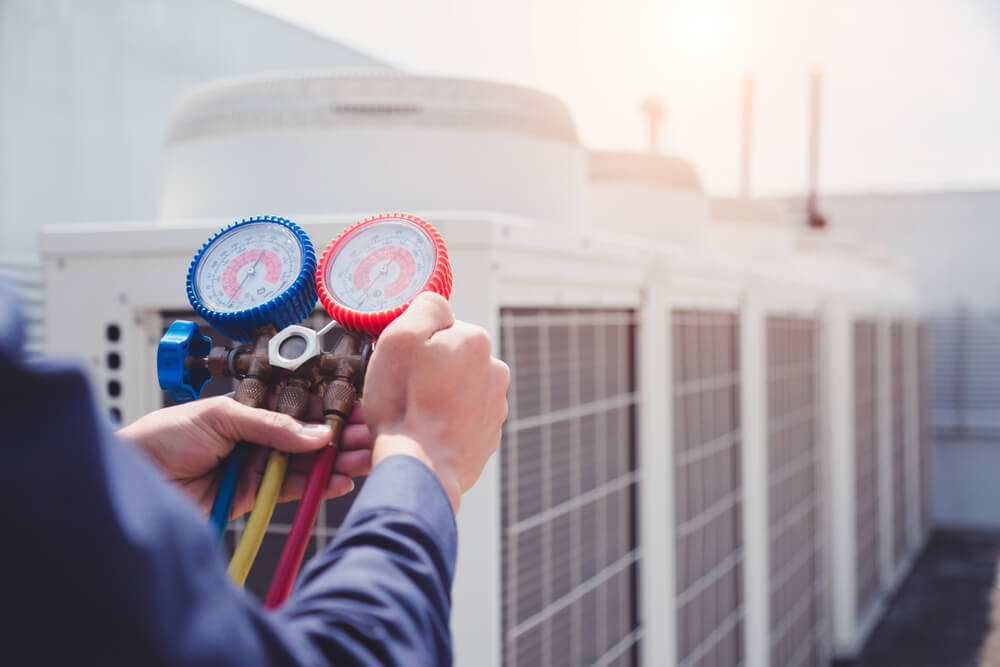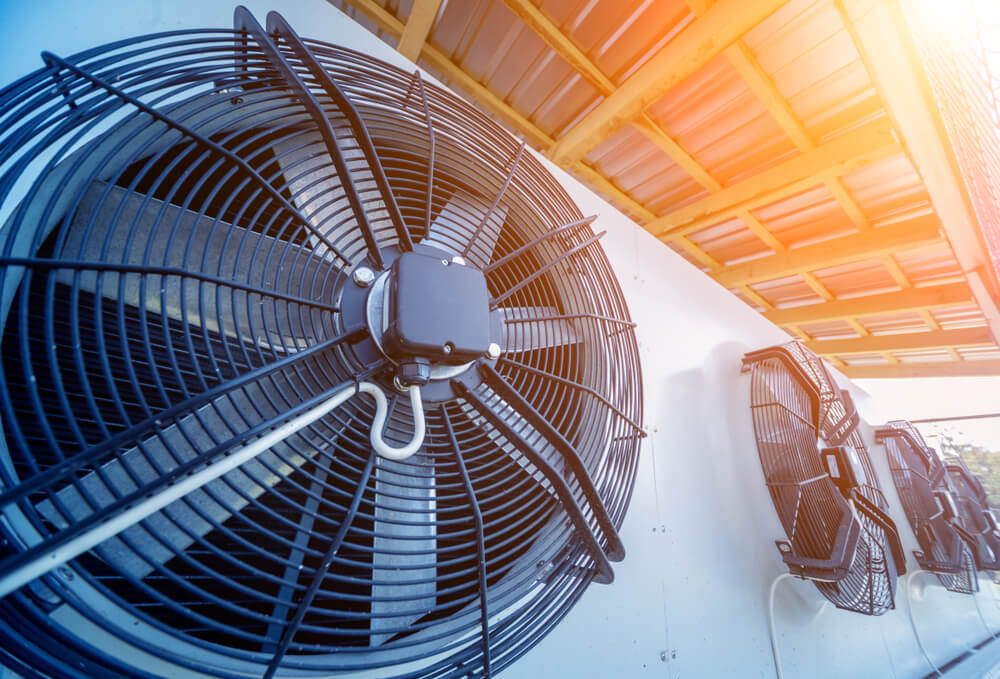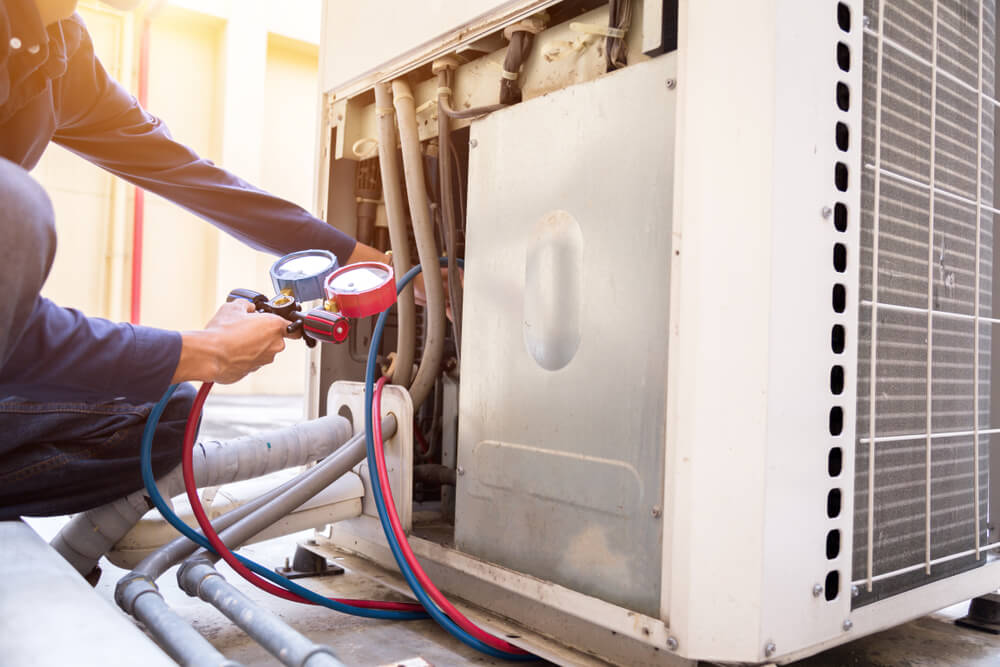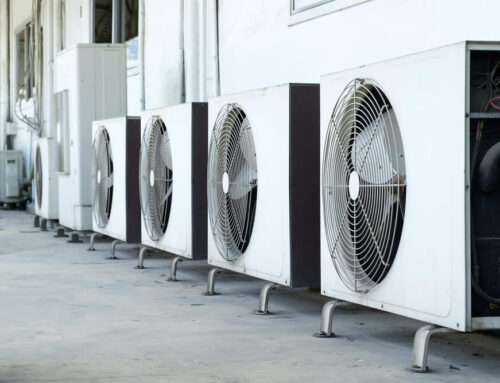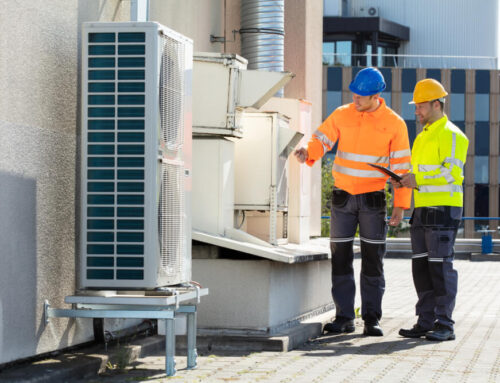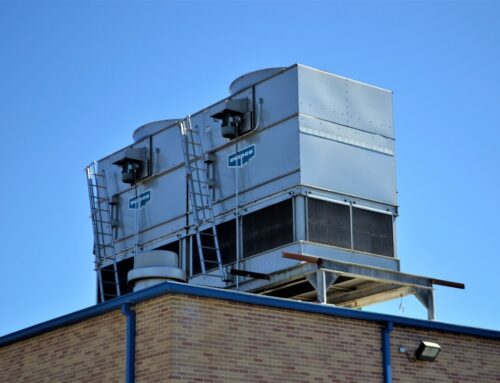When investing in complex commercial HVAC equipment, it’s only natural that you want it to last as long as possible. Still, you need to know how long commercial HVAC systems last, or at least be familiar with ballpark figures so you can make a smart and lasting investment.
On the other hand, HVAC life expectancy and HVAC lifespan become a different story when you’ve bought a new property or asset with an already installed system. In this case, your best bet would be to get the help of the Best South Florida Air Conditioning Service to help you out with Commercial HVAC Maintenance in Miami and see whether the current HVAC system is or will be up to par for years to come or it should be replaced with a new system.
Why? Because the last thing you want in cases is to poor way too much money and time into equipment that’s almost beyond saving. That said, this blog post will talk about HVAC life expectancy and strategies that can help you maximize the HVAC’s lifespan.
How Long Do Commercial HVAC Systems Last?
To be quite frank, there’s no typical HVAC lifespan or AC unit life expectancy. The lifespan of these pieces of commercial equipment can range anywhere from five to a respectable twenty years. Still, there are statistical data we can rely on that kind of draws the golden line for typical HVAC equipment life expectancy. More specifically, the ASHRAE, or the American Society of Heating, Refrigerating, and Air-Conditioning Engineers, has found that the average lifespan of HVAC systems is around 15 years, with proper preventative maintenance and optimal use.
So, the general HVAC and AC unit life expectancy hovers at fifteen years. On that note, what are the things that may cause these systems to fail and become beyond repair before hitting the decade-and-a-half mark? According to experts, the following can be detrimental to these systems:
- Little to no maintenance: It shouldn’t come as a surprise, but poorly maintained equipment will always be prone to damage and will need costlier repairs to keep the system running. In time, all the problems will ad up, which might lead to total system failure, which will be an expensive repair, but in some cases, it will also warrant a full HVAC rehaul.
- Quality problems: Not all brands are the same. Some HVAC and AC units simply come with better materials and engineering. Low-quality parts and bad design will also lead to earlier system failure.
- Not scheduling timely repairs: If the equipment has a problem, but instead of addressing it right away, you keep it running, you’re risking causing further damage to an already faulty system. This will definitely do a number of your HVAC’s life expectancy and will also probably leave you with a higher repair bill.
- Proper use in an improper setting: Your HVAC or AC unit’s life expectancy will also be shorter if you run a too-small system that must address the needs of a way too-large building. These systems will run for too long and too hard, and the added stress will probably lead to failure sooner than originally claimed. That said, when you are thinking about getting the most out of your HVAC equipment’s life expectancy, you’ll also need to consider not just the quality but the capacity of the entire system.
Estimating Commercial HVAC Life Span
If you find yourself in possession of older HVAC equipment due to purchasing an old building or if you’ve discovered that your company lacks records on its HVAC systems and their maintenance needs, there are steps you can take to address the situation. Firstly, you can estimate the remaining lifespan of your commercial HVAC equipment. Additionally, implementing new procedures can assist you in monitoring and maintaining them effectively. Here are some recommended actions to consider:
- Implement record-keeping: Establish individual files for each HVAC equipment unit you possess. Gather any available documents, such as purchase quotes, installation records, manuals, repair details, and other relevant paperwork, and include them in the respective files. These records will provide valuable insights into the equipment’s purchase date, warranty duration, and other essential information, enabling you to assess its remaining lifespan effectively.
- Inspect the equipment: Supplement your records by visually inspecting the equipment or enlisting the assistance of staff members who work directly with it. Before engaging a professional HVAC technician, this preliminary assessment allows you to address any concerns. Look out for potential issues such as damaged or distorted cabinets, clogged or improperly sized filters, dirt or debris accumulation, unusual operational noises, or strange odors emanating from the equipment.
- Arrange for professional inspection: Engage the services of HVAC professionals who can thoroughly evaluate the equipment’s performance and heat or cooling distribution efficiency and identify any existing damage or inefficiencies. Their expertise can help alleviate strain on the equipment and suggest corrective measures where necessary.
- Monitor utility usage: With your comprehensive files in place, record utility information to track the equipment’s performance consistently. Sudden spikes or gradual increases in utility costs can indicate the need for repairs or equipment replacement.
- Maintain repair records: Include detailed records of repairs and inspections in your files. This will provide you with a comprehensive overview of the equipment’s maintenance history, including the age of specific parts and the filters’ last cleaning or replacement date.
When Should You Consider Replacing Your Equipment?
While it’s essential to maximize the lifespan of your system, it doesn’t necessarily mean that you have to keep it around and wait for its last few blows. Repairing even well-maintained systems can be really expensive, not to mention older systems probably won’t be as efficient as the newer units you can purchase. Apart from the higher utilities, their impaired or less efficient work may also harm the environment.
The best option for you is to do the math. More specifically, high utility bills can cost you enough that replacing your current equipment may even pay for itself in a couple of years. If that’s the case with you, replacing your system might be a good idea. Still, this decision will depend on a few more questions, so you should discuss everything with your HVAC technician and make a more educated decision.
Maximizing the Lifespan of Commercial HVAC Equipment
There are several strategies you can employ to maintain your commercial HVAC equipment in optimal condition and extend its lifespan:
Regular maintenance: While annual maintenance may be sufficient for residential HVAC systems, commercial systems often require more frequent check-ups. Consult with your HVAC technician to determine the appropriate maintenance schedule for your system.
Prompt and proper repairs: In larger residential settings, occupants may not always report issues with the HVAC system. Encourage tenants or guests to notify you of any problems or proactively test the system yourself to identify and address issues promptly before they escalate.
Effective record-keeping: Maintaining comprehensive records enables informed decision-making to maximize your system’s lifespan. By documenting maintenance activities, repairs, and relevant information, you gain valuable insights into your equipment’s history and can implement appropriate strategies for longevity.
Invest in quality equipment: It is worthwhile to invest upfront in high-quality HVAC equipment. You can reduce long-term maintenance, repair, and replacement costs by opting for reliable and durable systems.
Rely on trusted HVAC technicians: Collaborating with a reputable HVAC technician is crucial in maximizing the life expectancy of your commercial HVAC system. They can provide expert guidance, perform regular inspections, and offer valuable recommendations tailored to your specific equipment and needs.
By implementing these measures and partnering with a reliable professional, you can enhance your commercial HVAC equipment’s performance, durability, and overall lifespan.
And if you need any more help, call us any time.

